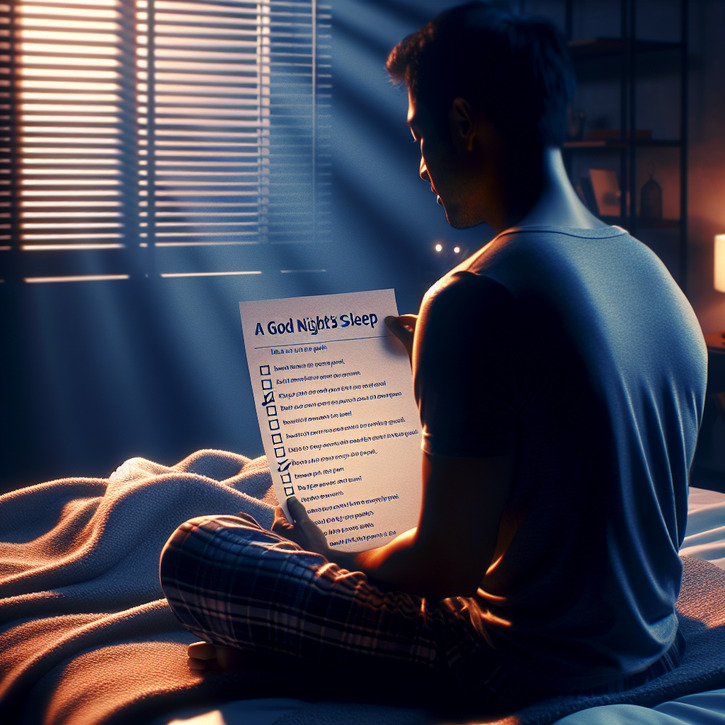The Hidden Causes of Sleep Issues and How to Address Them

Getting to Know Sleep Issues: Discovering What’s Really Going On
So, What Exactly Are Sleep Issues and Why Do They Matter?
When we talk about sleep issues, we're covering everything from the occasional bout of insomnia to long-term sleep disorders that seem to stick around. In our speedy, modern lives, a good night’s sleep is like fuel for our brains and bodies—it keeps us sharp, productive, and emotionally balanced. Whether you’re cramming for exams, hustling at work, or simply desperate for some quality shut-eye, understanding the nature of these sleep problems is the first step to reclaiming those much-needed Zzz’s.
How Sleep Issues Mess with Your Daily Life
Imagine lugging around an invisible weight that drains your energy and zaps your focus all day—that’s what sleep issues can feel like. Many folks share that after rough nights, they wake up cranky, scattered, and just plain overwhelmed. Over time, this lack of proper rest not only clouds your thinking but can also leave you with headaches or a weakened immune system. When daily tasks start feeling like climbing Everest, it’s a clear sign that something’s off. Spotting these early signals is key because tackling your sleep troubles now can stop them from snowballing into bigger health issues down the road.
Digging into the Hidden Causes of Sleep Woes
Stress and erratic schedules are often blamed for sleep disturbances, but there’s usually a lot more happening behind the scenes. Sometimes it’s those subtle lifestyle habits, sneaky environmental factors, or even undiagnosed health conditions that throw off your rest. Take, for example, the impact of too much artificial light in the evening or a diet that’s missing key nutrients—both can really disrupt your natural sleep-wake rhythm. Once you start uncovering these hidden contributors, you can begin to see the bigger picture and find a more holistic approach to bringing back that refreshing sleep.
Everyday Habits That Can Make Sleep Issues Worse
How Stress Sneaks Its Way Into Our Nights
Stress is like a sneaky intruder—it creeps into your day and messes with your sleep cycle before you even know what’s happening. When you’re stressed out, your body floods you with cortisol (the notorious “stress hormone”), which can seriously delay your ability to fall asleep and mess up your entire sleep pattern. It’s that all-too-common scenario: lying awake, mind racing about tomorrow’s to-do list or past worries. When stress sticks around, it magnifies sleep issues, making it all the more important to manage it through mindfulness practices, relaxation techniques, or a little tweaking of your schedule.
Bad Sleep Habits: How They Keep You Tossing and Turning
Let’s face it, habits like irregular bedtimes or hours spent glued to screens can wildly disrupt your body’s internal clock. Staying up late binge-watching shows or scrolling through your phone not only pushes your bedtime later, but that bombardment of blue light makes it much tougher for your brain to wind down naturally. Over time, these habits create a vicious cycle, where your brain constantly stays alert instead of easing into sleep mode. The fix? Set up a consistent bedtime routine to signal to your body that it’s time to relax and get ready for some quality sleep.
The Perils of Inconsistent Routines
It turns out that a wildly unpredictable daily routine does more than just throw off your schedule—it can actually trigger long-term sleep issues. When meal times, workouts, and bedtimes are all over the map, your body struggles to regulate crucial sleep hormones like melatonin. This inconsistency leaves you feeling off-balance and perpetually tired, as your internal clock just can’t keep up with the chaos. If your sleep feels like a moving target, trying to establish a more predictable routine might be just the ticket to easing your struggles with sleep.
How Your Environment Impacts Your Sleep
Noise, Light, and Other Intruders in Your Sleep Sanctuary
Ever notice how a bit of extra noise or a stray light can completely ruin your sleep? Our sleep isn’t just affected by what's going on inside our heads—it’s also shaped by our surroundings. Whether it’s the constant buzz of city life, the piercing glare from streetlights through your window, or even a random beep from your neighbor’s alarm, these annoyances can break that all-important sleep cycle. Even small disturbances can keep your mind a little too alert, making it hard to sink into a deep, restful sleep. Recognizing these factors and taking steps to dampen them is a major move toward a night of undisturbed slumber.
Crafting a Bedroom That’s a True Sleep Haven
One of the best moves you can make for your sleep is turning your bedroom into a cozy sanctuary. Simple changes—like putting up blackout curtains, using a white noise machine, or rearranging your space to create a calmer vibe—can make a big difference. Think of your sleeping area as your private retreat; what you surround yourself with at night can either refresh your mind or leave it buzzing. Tweak room temperature, your bedding, even the position of your nightstand until everything feels just right. When your room sends the message that it’s time to rest, your body will eventually catch on, offering you the deep sleep you’ve been chasing.
The Mental Health Connection: When Anxiety and Depression Interfere with Sleep
How Anxiety and Depression Can Fuel Sleep Problems
It’s no secret that mental health plays a big role in how we sleep. Anxiety and depression, for instance, often create a perfect storm of worry and endless rumination that keeps you tossing and turning at night. It’s all too common to find yourself lying awake, trapped in a cycle of distressing thoughts and unease. This emotional rollercoaster not only chops up your sleep but also deepens the mental health issues, making for a tough, self-reinforcing cycle. Often, addressing these underlying emotional challenges with professional help or lifestyle changes can have a surprisingly positive ripple effect on your sleep.
Cognitive Overload: When Your Brain Just Can’t Switch Off
In our hyper-connected age, our brains are constantly bombarded with information—from endless emails to that irresistible scroll through social media. This overload keeps your mind in a state of high alert, even when your body is begging for rest. It’s like trying to power down a computer that never stops processing data; no wonder sleep seems so elusive! Cutting back on digital distractions before bed and setting firm boundaries on screen time can ease this mental burden, helping your brain finally transition into a more relaxed state conducive to deep, restorative sleep.
How Diet Plays a Sneaky Role in Your Sleep Patterns
The Downside of Late-Night Snacking
Did you know that what you eat—and when you eat it—can have a big impact on your sleep? Late-night meals, especially those heavy or loaded with caffeine and sugar, can throw off your body’s delicate sleep mechanism. When you're busy digesting a big meal right before bed, your body is too occupied to fully relax into sleep mode. Moreover, those midnight snacks might trigger discomfort or acid reflux, making it even harder to catch good sleep. Trying to.space out your meals so that there's a couple of hours between dinner and bedtime could be just what you need to enjoy a smoother, more refreshing sleep cycle.
How Lack of Key Nutrients Can Sabotage Your Sleep
Beyond the timing of meals, the overall quality of your diet plays a huge role in maintaining regular sleep patterns. Missing out on essential nutrients like magnesium, vitamin D, or B vitamins can throw your body’s ability to unwind and stick to a healthy sleep cycle out of whack. For example, magnesium is like a natural chill pill for your nervous system—so when it's in short supply, sleep can suffer. Embracing a balanced diet packed with fruits, veggies, whole grains, and lean proteins might seem like a small change, but it could be a game changer for smoothing out chronic sleep issues over time.
Unseen Medical Factors, Including Hearing Disorders, That Disrupt Sleep
How Hearing Disorders Can Be a Hidden Culprit in Sleep Issues
While we often zero in on lifestyle and environmental factors when it comes to sleep troubles, it's important not to underestimate the role of certain medical conditions, like hearing disorders. People grappling with hearing challenges often experience sleep disruptions because of factors that are both physical and psychological. For some, the constant background buzz or tinnitus can really disturb the peace needed for deep sleep, while the stress of managing a hearing problem only intensifies these issues. If you suspect that a hearing disorder might be messing with your sleep, chatting with a specialist could shine a light on the situation and point you toward treatments that help reclaim your rest.
Other Health Conditions That Might Be Stealthily Triggering Sleep Problems
It isn’t just hearing issues—other medical conditions like sleep apnea, restless leg syndrome, or even persistent allergies can quietly sabotage your sleep if left unchecked. These conditions are often brushed off as everyday tiredness or minor discomfort, which means they fly under the radar until they really start to affect your health. Recognizing that there might be more going on beneath the surface is an important step if you’re wrestling with constant sleep problems. Booking a consultation with a healthcare provider can help pinpoint these hidden triggers and put you on track to a healthier, more well-rested routine.
Real-World Tips and Tricks to Beat Sleep Issues
Simple Lifestyle Tweaks to Get Better Sleep
Finding your way to a peaceful night’s sleep might feel like an uphill battle sometimes, but small lifestyle changes can make a world of difference. Think about establishing a calming bedtime routine—maybe it’s reading a book, doing some gentle stretching, or soaking in a warm bath to signal to your body that it’s time to wind down. Adding in a bit of mindfulness, whether it’s meditation or deep breathing exercises, can ease stress and help clear the mental clutter. And don't forget about setting up your bedroom as a true sleep-friendly zone—every little tweak helps reset your internal clock over time. With patience and consistency, even these modest adjustments can eventually lead to real improvements in your sleep.
Knowing When to Ask for Professional Help
Even with all the self-help tips and home remedies out there, sometimes it’s best to bring in the pros. If your sleep issues just won’t quit despite your best efforts, it might be time to consult a healthcare professional who specializes in sleep. These experts can evaluate your situation, offer targeted therapies, and suggest lifestyle changes tailored specifically to your needs. Plus, if underlying emotional concerns like anxiety or chronic stress are to blame, speaking with a therapist might give you the relief you need. In our era of integrative medicine, combining expert advice with your own self-care can be the ultimate recipe for reclaiming those precious, restorative hours of sleep.






